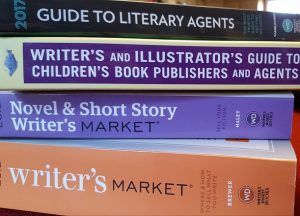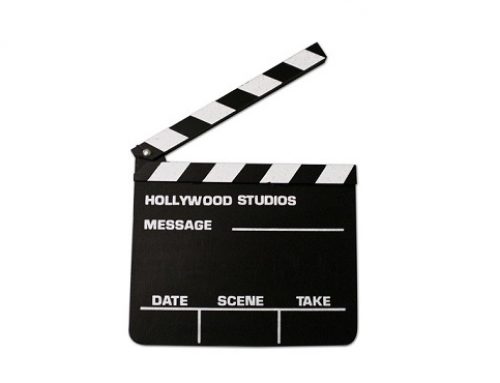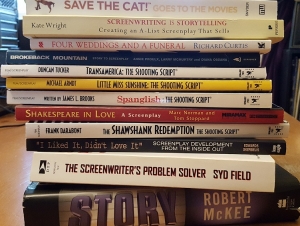 What Novelists Need to Know
What Novelists Need to Know
by Renée J. Lukas
(NOTE: This blog concerns getting published the traditional way, not self-publishing. We’ll have more about self-publishing in upcoming blogs.)
Your manuscript is finally done. Now what?
Before you buy the latest Writer’s Market or other reference book, or go online, you need to decide what your career goals are. Are you hoping for a one-hit wonder that makes lots of money? If so, quit reading. You’re probably not going to like the rest of this post. If, however, you’re in it for the long haul and you feel that writing truly is your calling, read on!
Why Big Publishers Won’t Consider Your Work
If you want to get published, you ultimately need a publisher. But many of the biggies, such as Little, Brown or Simon & Schuster, won’t consider you without an agent. Is it because these publishers are snobs? No. Well, maybe some are. I don’t know them all personally. But mainly it’s because they don’t have time to wade through a monumental pile of unsolicited work, which they absolutely have waiting on their desks, to find the one gem in the pile. Why is the pile so big? Because many people think they’re the next J.K. Rowling. They aren’t.
So if you were a publisher, you’d want to focus on your existing clients and not waste time reading, for lack of a better word, crap. No offense to you writers out there whose work is crap-free.
Literary Agents
This is where a literary agent comes in. The agent acts as sort of a screener for the publisher, assuring them your manuscript is worth their time and that you’re not a wacko.
Drill down deeper and you’ll find that some of the bigger agents need the same assurance, so they won’t accept unsolicited work, either! In this case, your best bet is a referral. An existing client of that agent, or someone who knows the agent, can vouch for you, assure them your manuscript is worth a read and that you’re not crazy.
But what if you don’t know anyone who has or knows an agent? Are you out of luck? Not at all!
How to Get an Agent
If you don’t have a referral, you have to choose those agents who are willing to look at unsolicited queries. (See upcoming blog posts for more about writing killer queries.) You’ll find there are many agents out there who are approachable this way. There’s something kind of nice about this strategy, as it levels the playing field and becomes all about the quality of your story and not who you know. Some agents will request to see the first ten pages or even the whole manuscript. That’s why you want to make sure it is as polished as can be. If they request it and you’re not ready, you might not get a second chance.
Once you have an agent, you should know that they usually take a 15% commission on the sales of your book. Many writers feel this is worth it because it’s the agent who helped to secure the deal with the biggies mentioned above. However, some writers prefer to connect directly with publishers themselves.
How to Get a Publisher
If you aren’t represented by an agent, there are also publishers who will accept unsolicited queries, too. Be sure to do your research. I’m a big fan of Writer’s Market. There you can see what kinds of titles a publisher has already published. That way, you can see if your work is a fit or not. If you’ve just written a violent, hard-core horror story, you won’t make the mistake of sending it to a children’s publisher.
Smaller Publishers vs. Big Publishers
Though you may have a longer climb financially, many smaller presses support authors and their long-term career goals. This is also appealing in special niche markets, where a writer can build a following of loyal readers who will read anything written by an author they love. So this works well for many authors. Keep in mind, though, that larger publishers typically have bigger marketing machines behind them. The New York Review of Books will be more likely to hear about you if you’re published by a biggie. Whether you go larger or smaller, expect to do marketing and promotion yourself, in addition to the publisher’s efforts. This is necessary because even smaller presses have many clients to promote. Ultimately, it’s like a relationship. You want to find a good fit. While many authors have had good experiences with larger publishers, some have said that the publisher’s roster was so full, they had very little personal contact. So there are definite pros and cons to big and small publishers.
Let’s say you find a publisher that seems to like the type of work you’ve done. You think it may be a good match, and you’re ready to contact them. Don’t expect an easy ride because this publisher is more open to queries. I was rejected twice by my publisher before they said yes! It’s a funny story, too, which I’ll tell you about in an upcoming blog, “The Top 5 Reasons for Rejection.” Hopefully, it will make you laugh and feel better about your own rejections!
Planning Your Writing Career
After you’ve finished your first book, you should be thinking about what kind of genre you’re most inclined to. Like it or not, those who sell and promote your work will want to label it as something, whether or not you do. You should also think about your next one and your next. As I said before, I had two other novels that were rejected years ago before I pitched the one that gave me my break. So you have to be more than a one-hit wonder to have a real writing career. It takes persistence, adaptability and a belief in your talent to get past this first hurdle. And that’s when the fun—and even harder work—begins!
Good luck and happy writing!
Keep checking my blog for upcoming posts on query letters for books, pitching for screenplays, other fun tidbits about agents and more!




